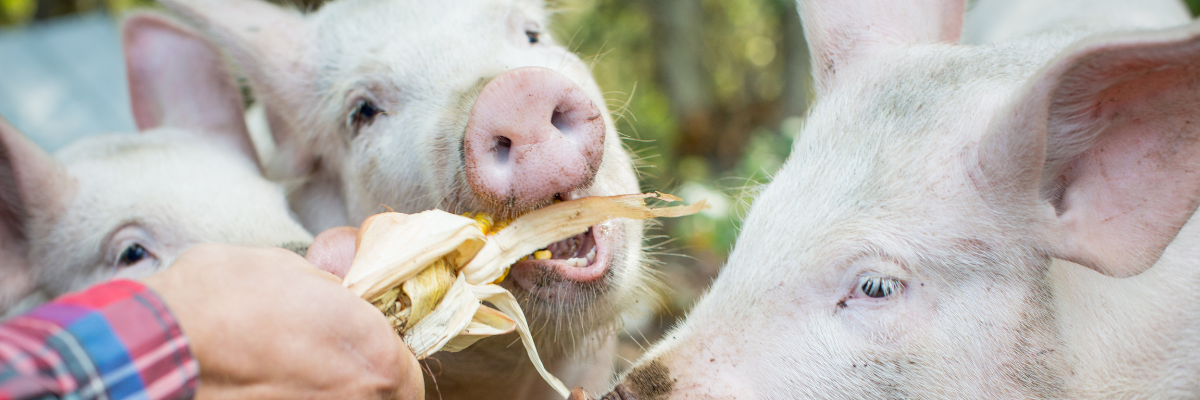
Our story
Learn about
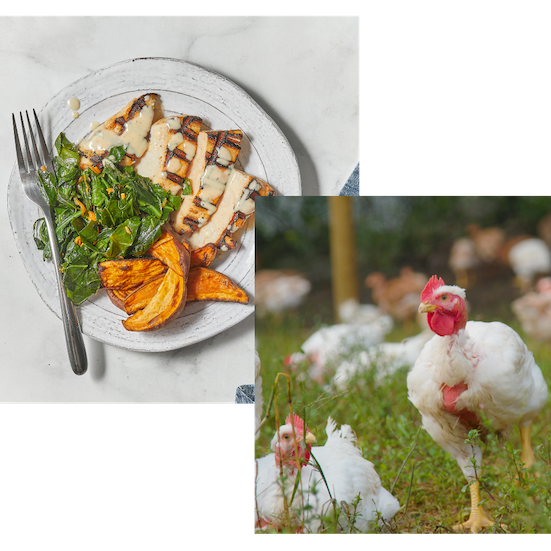
vision
Our
We believe healthy eating and sustainable agriculture- through the integration of regenerative farming, nutritional science, and culinary innovation - hold the keys to building a more humane, healthy, and sustainable future.






























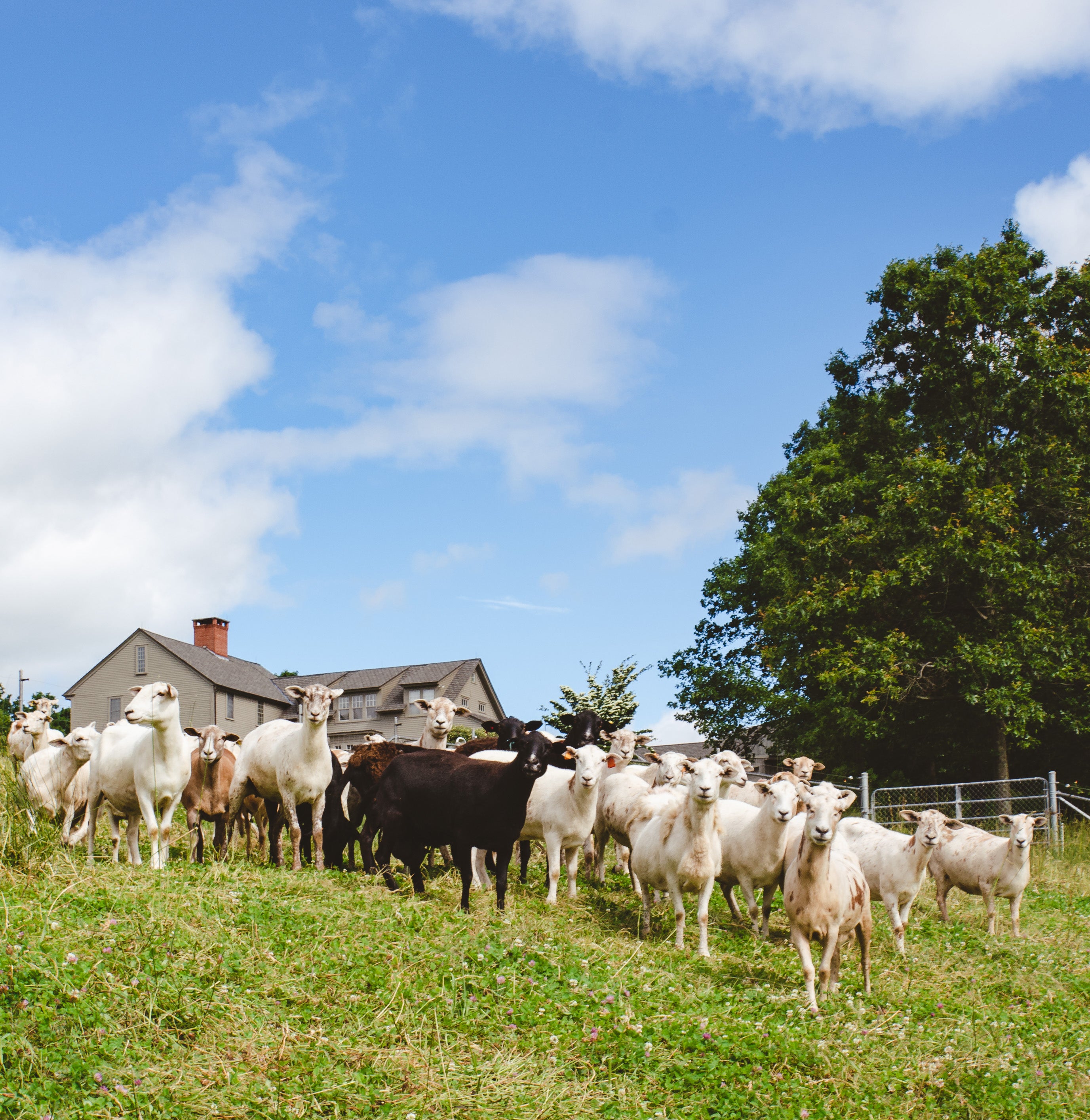
Regenerative Farming
#1
Azuluna Farms use holistic, regenerative production practices that ensure the restoration and preservation of the land on which we raise livestock¹.
Our animals graze on pasture and are strategically rotated through paddocks, allowing for optimal vegetative regrowth and soil regeneration².
Not only does this benefit the land, but the animals as well - our livestock consume more nutrient-dense vegetation in a system that allows for the full expression of their natural behaviors³.
Additionally, our animals are never exposed to antibiotics⁴, hormones⁵, or GMO feed⁶.
Click here to learn more about the benefits of regenerative agriculture.

Better Food
#2
At Azuluna Foods, we believe the foundation of health is nutritious and flavor-forward food, but we know how busy life can get. That is why Azuluna chefs curate convenient, seasonally-minded meals that are ready to eat in minutes: health without the hassle.
Azuluna recipes are crafted by classically trained chefs who collaborate with our team of dietitians to deliver nutrient dense meals that fuel your active lifestyle, optimizing health while prioritizing flavor.
All dishes are free of gluten⁷, soy⁸, GMOs⁶, and refined sugar⁹.
Our meals are responsibly sourced, featuring proteins from Azuluna Foods regenerative farms and sustainably sourced seafood. Whenever possible, our produce is sourced from local and/or organic producers, prioritizing small supply chains and conscientious growers.

Stronger Communities
#3
From the preservation of soil microbiota networks to the fortification of regional economies, Azuluna supports communities at every scale.
Azuluna Farms is pioneering a new, cooperative farming model that expands regional livestock production, creating 120 new farm enterprises within New England by 2024. We believe in the benefits of a shared economy and fair wages, for all farmers. To learn more about our hub-and-spoke agricultural system, click here.
We want to empower the next generation with the knowledge to make healthy and sustainable dietary decisions. Azuluna Farms connect with schools within our region, offering a menu of experiential agriculture and nutrition education courses that align with the curriculum already taught in schools. With the farm as our classroom, we believe we can meaningfully impact over 200,000 students in the next 5 years.
Azuluna Foods provides free access to the most current industry innovation and research, breaking down information to provide readers with what they need to know to thrive.
Meet the Team
Our Experts

Ken Rapoport
CO-FOUNDER
FARMER & ENTREPRENEUR

Geri Brewster, RD MPH CDN
AZULUNA FOODS ADVISOR
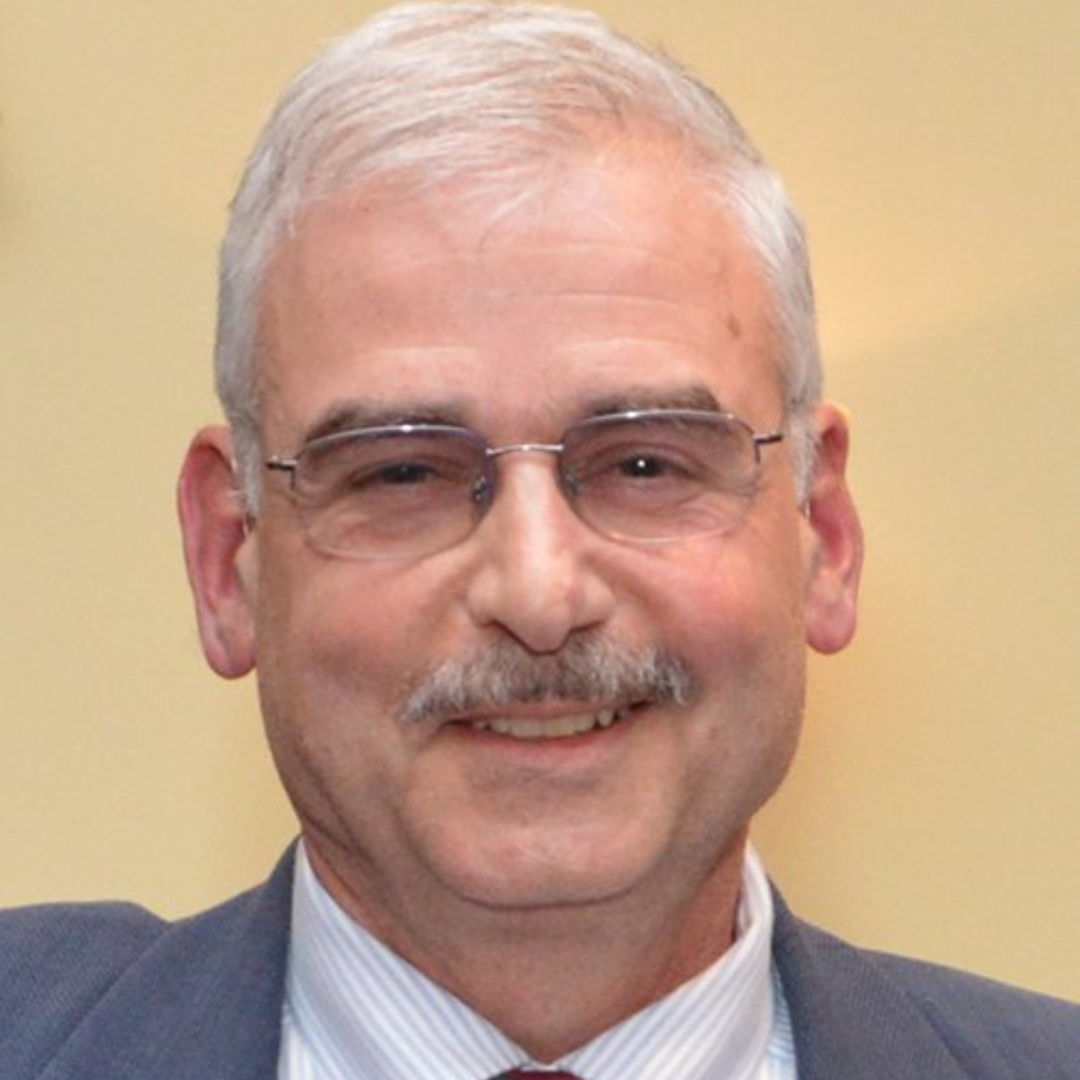
Dr. George Saperstein
DVM | AZULUNA FOODS ADVISOR
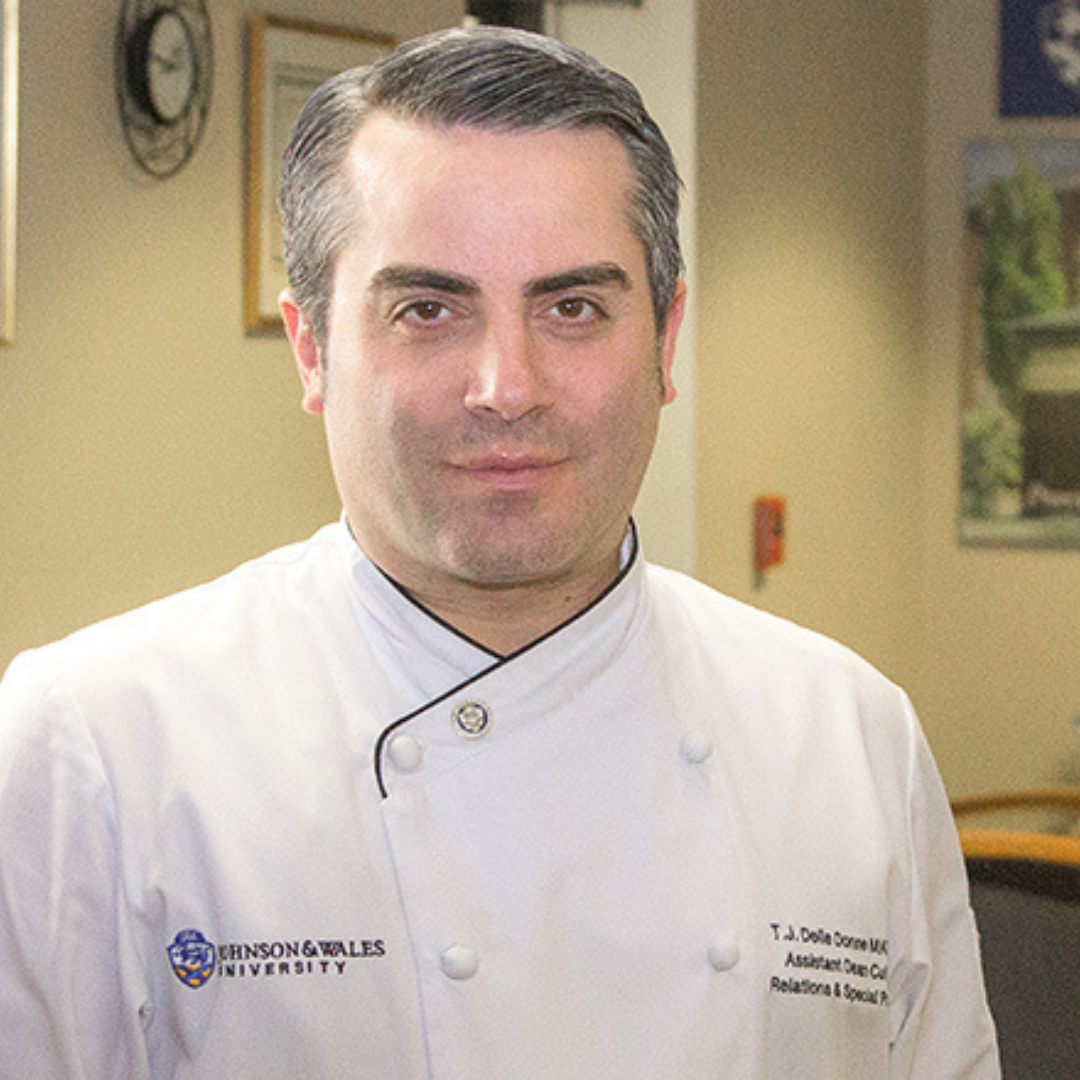
Thomas J. "TJ" Delle Donne
MAT, CEC | AZULUNA FOODS ADVISOR

Azuluna Foods
Our History
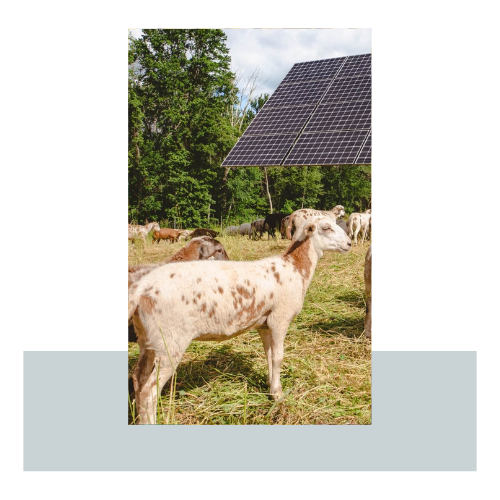
2004
Dr. George Saperstein of Tufts University is awarded grants established by Senators Christopher Dodd and Joe Liebermann to develop a strategy for expanding sustainable agriculture and reforming healthcare in New England.
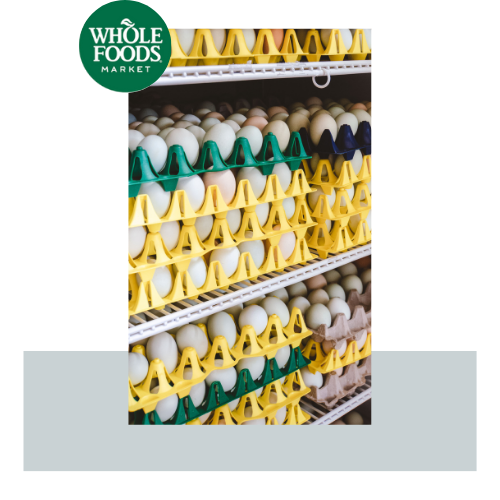
2007
Azuluna Foods secures an exclusive Whole Foods Market partnership, the first foraging contract of its kind.
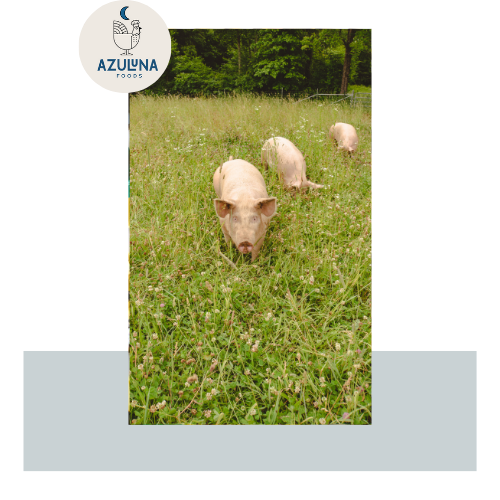
2009
Azuluna Foods expands to pasture-raised pork and lamb production, receiving positive feedback from local chefs and consumer focus groups.
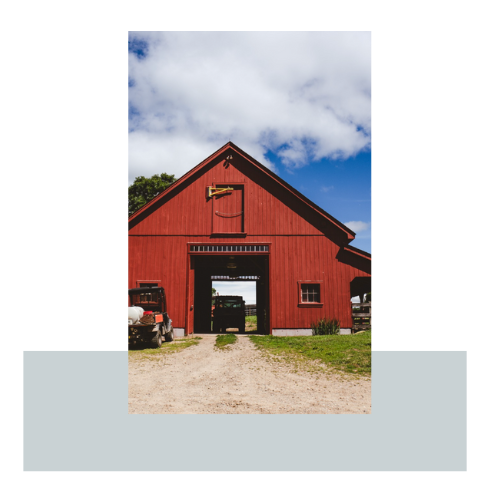
2012
Our first hub farm, Woodstock Sustainable Farm, is established in Woodstock, CT.

2018
Farmer and entrepreneur, Ken Rapoport, acquires the brand. Revitalizes the business to include value-added products that deliver agricultural sustainability. Becomes a founding member of the Food Innovation Council at Tufts University Friedman School of Nutrition Science and Policy.
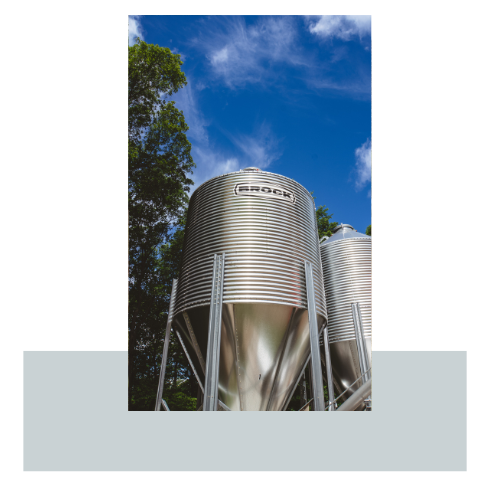
2021
Azuluna Foods is invited to move its production facility to Johnson & Wales University's Providence Campus, one of the nations leading culinary education institutions. Gains strategic access to some of the best culinary minds, producers, and farmers in the greater New England area.
